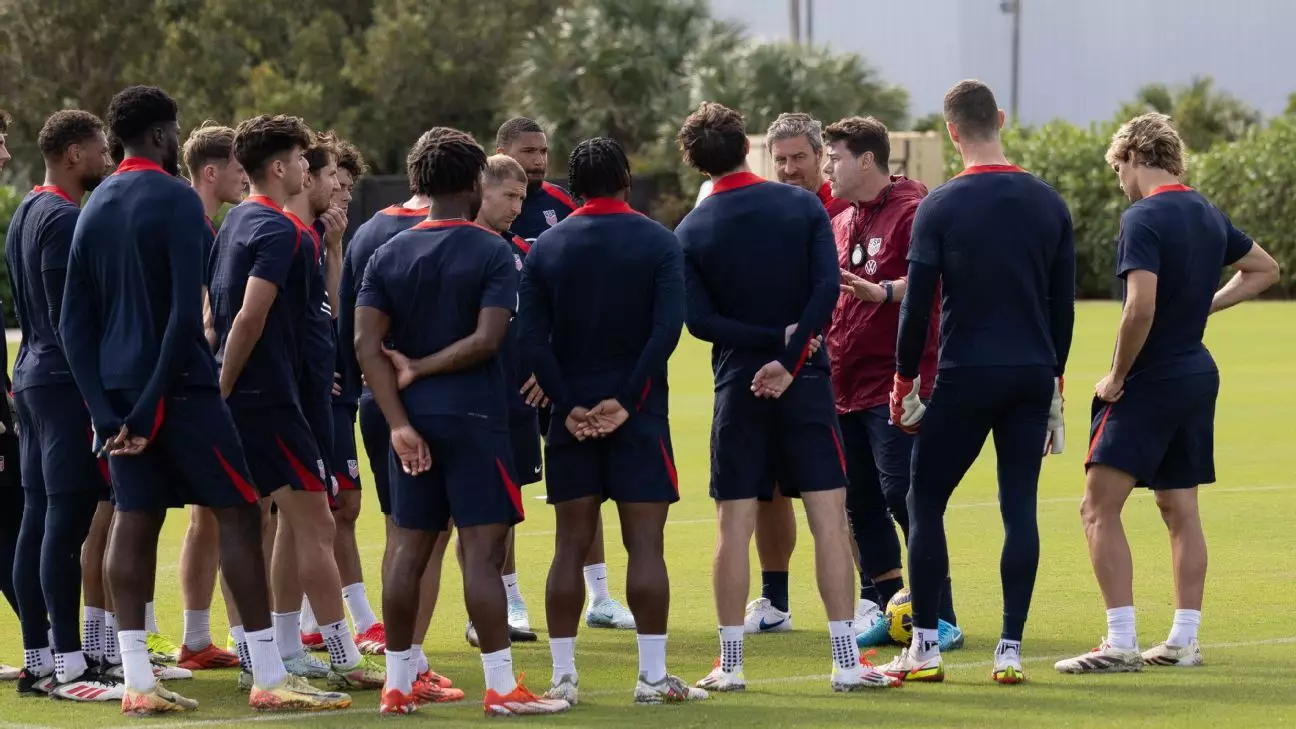The January camp for the U.S. Men’s National Team (USMNT) has often been viewed through a lens of skepticism, with some labeling it as an “alternative team.” However, Coach Mauricio Pochettino boldly redefines this perception by presenting the camp as a crucial platform for emerging talents to vie for inclusion in the wider player pool. Historically, this camp has served as a unique opportunity for players from Major League Soccer (MLS) to showcase their abilities, especially when conventional FIFA windows are unavailable. The focus is not merely on filling slots but rather on a strategic assessment of potential stars who might contribute significantly to the national team in the future.
Pochettino’s viewpoint emphasizes the contemporary narrative surrounding these players. “I don’t like naming it an alternative team,” he stated, making it clear that this selection is a direct reflection of the available talent and their deserving recognition. His aim is to instill a sense of importance in these athletes, encouraging them to approach the camp not just as an opportunity, but as a stage where they can demonstrate their readiness to compete at the highest level.
One of the pivotal aspects of this January camp is the fostering of confidence among players. Pochettino recognizes that many athletes arrive with ambition, yet they might feel overshadowed by those with established reputations. By emphasizing that this is not merely a fallback option, he empowers his squad by allowing them to believe in their potential contribution to the national team framework. The presence of a complete technical staff further enhances this experience. Observing players in a concentrated setting for two weeks not only allows the coaches to assess their abilities better but also builds relationships that transcend the pitch.
Confidence in a player’s capability to execute on the field is invaluable. This opportunity allows coaches to evaluate how well these players embody the skills necessary to compete against seasoned rivals. Pochettino’s strategy underlines the psychological component of the game, where players need to feel free to express their skills without the weight of expectations looming over them.
Pochettino highlighted a remarkable statistic that connects past January camps to the present: 30 players who debuted in this window since 2002 eventually found themselves on a World Cup roster. This historical context adds gravity to the significance of the current camp, establishing a legacy that successful players have built upon in the past. For instance, the recent World Cup squad featured nine players who initially shined during a January camp. Such precedents motivate both current participants and coaches alike, reinforcing the notion that opportunities in this environment can lead to remarkable outcomes in international competition.
The camp also serves as a critical selection tool for the coaching staff. Pochettino pointed out that these emergent talents are not just names on a list; they are potential game-changers capable of altering the dynamics of future matches. Assessing players in this manner helps create a comprehensive understanding of the team’s depth and capabilities across various positions.
Debutants Patrick Agyemang and Matko Miljevic epitomize the camp’s potential, both making their mark by scoring their first international goals in a match against Venezuela. Such performances not only reinforce the value of the January camp but also set a positive tone as the team prepares for their next challenge against Costa Rica. As athletes gain experience and confidence, their futures in international football seem increasingly promising.
Pochettino’s focus on transforming the narrative around the January camp—from an alternative setting to a competitive arena—represents an essential step in U.S. Soccer’s evolution. The camp is not just about talent identification but also about cultivating a sense of belonging and purpose among athletes. By embracing this mindset, Pochettino is laying the groundwork for a richer talent pipeline, ultimately aiming for a sustained competitive edge on the global football stage. The results from this camp could very well shape the future of the USMNT, marking a new era of success and cohesion.

